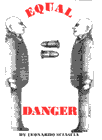© 2002-2017 Italian-mysteries.com

|
||||||||||||||||||||||||||||||||||||
|
||||||||||||||||||||||||||||||||||||
Leonardo SciasciaEqual Danger(Translated from the Italian by Adrienne Foulke)JACKET NOTES: The first man to die was District Attorney Varga, who was conducting the prosecution in the Reis trial. He died with a sprig of jasmine clasped in his hand. Home Page | Email | Site Search Contemporary Mysteries | Series | Non-Series Historical Mysteries | Ancient Rome | Middle Ages | Renaissance | 1800s Suspense/Thrillers | Action/Adventure | Literary Fiction | Non-Fiction Crime Series on DVD | Non-Italian Settings | Theme Views | Location Views | Author Index | Site Map | What's New Mystery Links | Waiting List © 2002-2017 italian-mysteries.com (The Mysteries Set in Italy Website) |
||||||||||||||||||||||||||||||||||||
